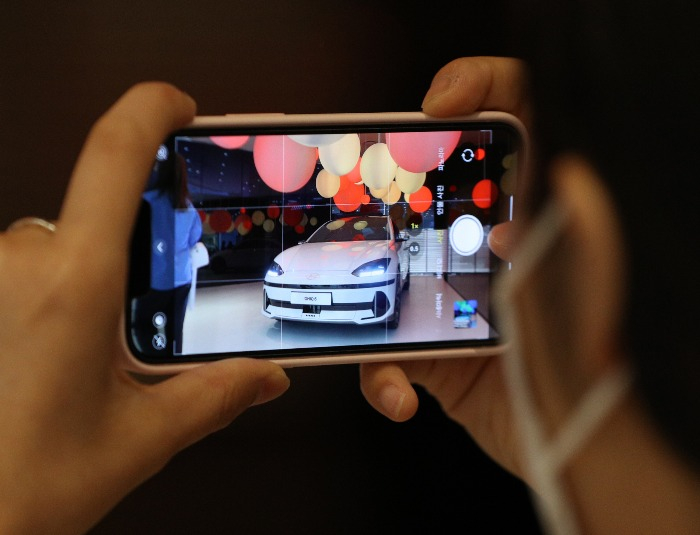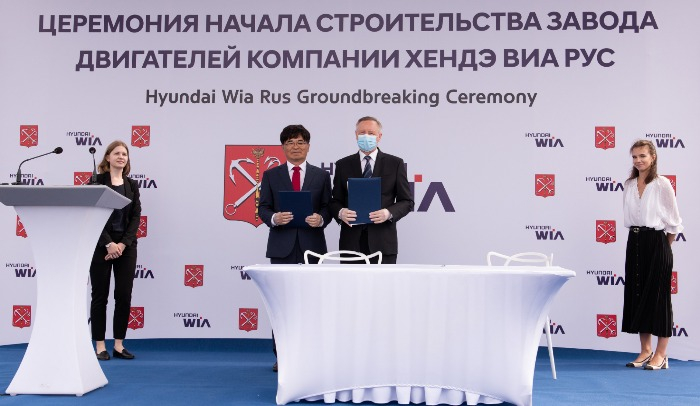Automobiles
Hyundai Motor between rock and a hard place over Russia operations
In the past year, the South Korean automotive giant has invested more than $383 million on facility expansion in St. Petersburg
By Aug 08, 2022 (Gmt+09:00)
2
Min read
Most Read
LG Chem to sell water filter business to Glenwood PE for $692 million


Kyobo Life poised to buy Japan’s SBI Group-owned savings bank


KT&G eyes overseas M&A after rejecting activist fund's offer


StockX in merger talks with Naver’s online reseller Kream


Mirae Asset to be named Korea Post’s core real estate fund operator



South Korea’s automotive juggernaut Hyundai Motor Co., which has invested heavily in Russia over the last several years, is stuck between a rock and a hard place on whether to continue its presence there or cut its losses and move on.
Total new car sales in Russia plunged 74.9% from July 2021 to 32,412 last month, according to an industry report.
The rapid decline follows Moscow’s prolonged war on Ukraine and the anti-Russian sentiment that has led European carmakers to leave the country.
Back in May, French automotive giant Groupe Renault sold its majority stake in Russia’s biggest carmaker AvtoVAZ and shut down its activities there amid the ongoing regional conflict.
Local media reports say Germany’s Volkswagen is in the process of selling its plant in Kaluga to Kazakhstan's Asia Auto.
Renault’s market share fell to 5.1% in July from 8.7% in the same month last year, while that of Volkswagen plummeted to 3.7% from 11.6% in the same time frame.
The Hyundai Motor Group, which owns Hyundai Motor Co. and Kia Corp., also saw decreased market share from 23.6% to 22.5%.
On the contrary, Russia’s homegrown brand of Lada cars, manufactured by the state-owned AvtoVAZ, saw its market share surge to 31.8% from the previous 24.8%.
Industry insiders say Chinese automakers are aggressively expanding their presence there to fill the gaps.

Hyundai Motor had an annual production capacity of 200,000 units at its St. Petersburg plant and increased capacity by 100,000 units two years ago with the acquisition of a former General Motors facility.
The additional investment, including the revamping efforts, is widely thought to have cost Hyundai more than 500 billion won ($383 million).
Despite the hefty investment, experts say the company should remain alert to the complex consumer sentiment and international affairs.
“Russophobia or anti-Russian sentiment will remain deeply rooted in the West long after the war on Ukraine is over,” Cho Yun-joo, an analyst at NH Investment & Securities Co. said, cautioning against negative repercussions that could come with continuing operations in Russia.
Write to Han-Shin Park at phs@hankyung.com
Jee Abbey Lee edited this article.
More to Read
-

-
 Korean chipmakersSamsung in talks to supply customized HBM4 to Nvidia, Broadcom, Google
Korean chipmakersSamsung in talks to supply customized HBM4 to Nvidia, Broadcom, Google24 HOURS AGO
-
 EnergyLS Cable breaks ground on $681 mn underwater cable plant in Chesapeake
EnergyLS Cable breaks ground on $681 mn underwater cable plant in ChesapeakeApr 29, 2025 (Gmt+09:00)
-
 Business & PoliticsUS tariffs add risk premium to dollar assets: Maurice Obstfeld
Business & PoliticsUS tariffs add risk premium to dollar assets: Maurice ObstfeldApr 29, 2025 (Gmt+09:00)
-

Comment 0
LOG IN


